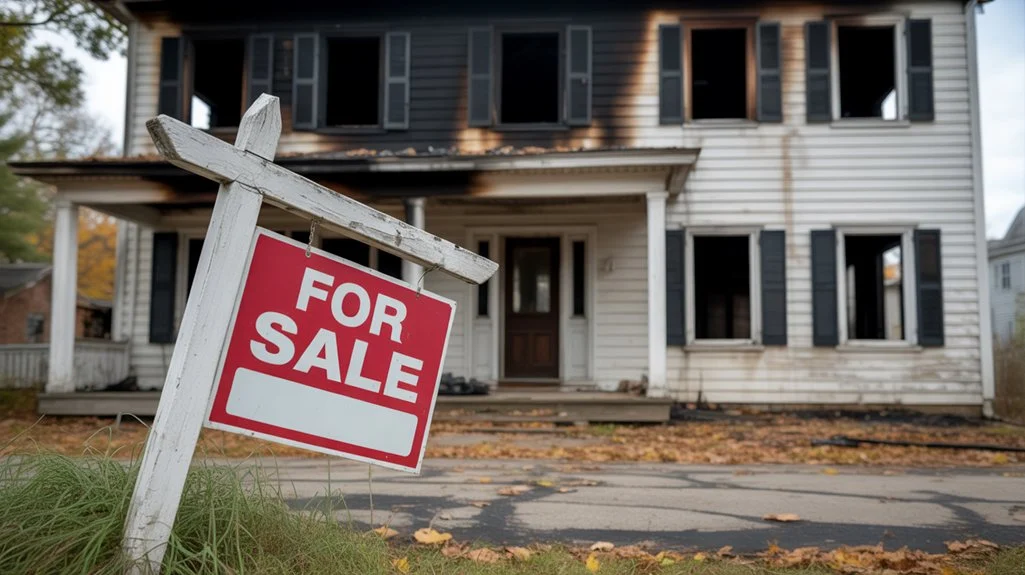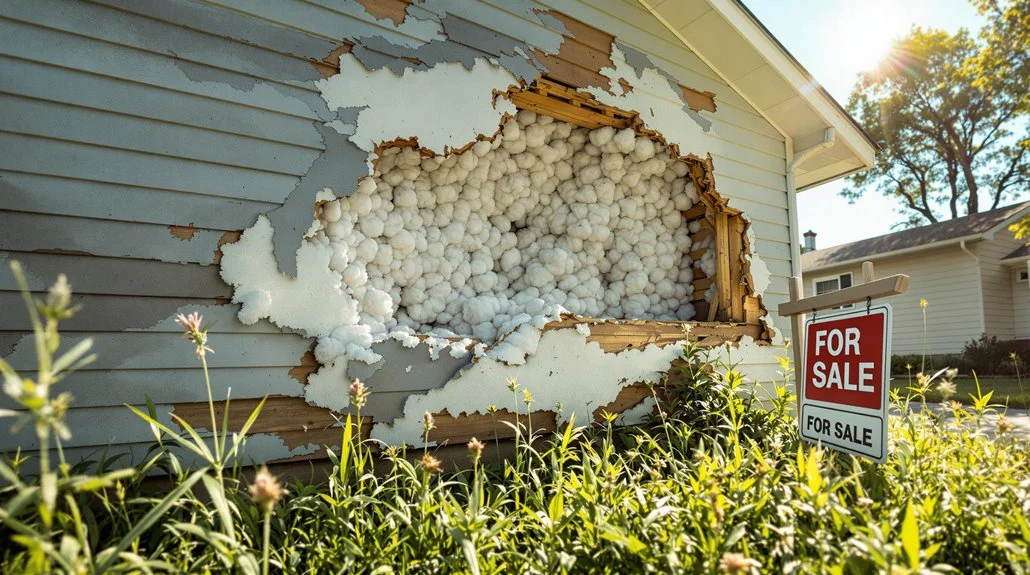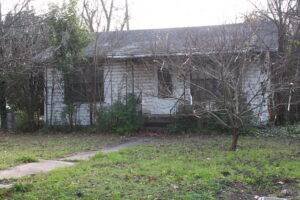"Selling a fire-damaged house isn't easy, but it can be done. It'll take some extra effort and knowledge, but with the right approach you can get your property sold quickly and for a good price.
Here's what you need to know about selling a fire-damaged home:
- How to assess the damage
- Ensure your safety when inspecting
- Finding potential buyers who understand the risks of buying damaged homes
With this info in hand, you'll be ready to make an informed decision on how to proceed with your sale. Let's get started!
Assessing The Damage
The damage caused by a fire can be catastrophic to a home. When selling a house that was affected by fire, the first thing you need to do is assess the extent of the damage.
Have an experienced inspector survey the property and make sure they are qualified in post-fire inspections so that all necessary repairs can be accurately identified.
Once you have gotten your inspection report back, it's time for you to start making decisions about what needs to be done with the property. You'll want to factor in both how much repair work will cost relative to the value of your home after it's been fixed up as well as any contingencies or regulations related to sales involving homes damaged by fires.
You should also consider whether there are parts of the house worth salvaging or if they must be demolished completely before starting renovations on other sections of the home. In some cases, this could mean significant savings when determining repair costs.
Carefully weigh these options before deciding which route would best serve your overall goals for selling your fire-damaged house.
Understanding The Risks
Now that you've assessed the damage, it's time to understand the risks associated with selling a fire damaged house.
When it comes to real estate investments, there is no such thing as playing it safe. You must be aware of the potential pitfalls and know how to navigate them before signing on the dotted line.
One of the biggest risks in this situation is dealing with repairs and restoration costs for the property. Even if you can get an estimate from a contractor or insurance company, there could still be hidden damages lurking beneath the surface. It’s important to know what kind of repair work needs to be done and who will cover those expenses.
Another risk factor involves finding buyers willing to take on a heavily damaged home. While some may appreciate its potential after restoring it, others might not have enough funds or expertise for such an undertaking.
Make sure you do your research about market conditions and pricing before putting your home up for sale – otherwise, you may find yourself stuck with an unsellable asset down the road.
Preparing The House For Sale
When selling a fire-damaged house, it's important to prepare the property properly before listing it on the market.
First and foremost, you need to make sure that any remaining damage is repaired in both an efficient and effective manner so as not to create further issues down the line for potential buyers. Everything from roofing materials to insulation needs checking over by a professional contractor who can assess the full extent of work needed prior to putting it up for sale.
It's also vital that all affected areas are thoroughly cleaned out and restored back to their former condition or better. Depending on the level of destruction caused by the blaze, this could involve removing smoke stains from walls, replacing carpets and ceiling fixtures, or even repainting whole sections of your home.
It might seem like a lot of effort at first, but making sure everything is back in tip-top shape will give added peace of mind when looking at offers come through.
Getting ready to sell a burned down residence isn't easy – especially if there was extensive damage done during the incident itself. But with proper planning and attention paid towards restoring each area one step at a time, you'll be able to put your best foot forward when trying to get top dollar for your damaged abode.
Make sure you're meticulous in getting every last detail right; it'll pay dividends once prospective buyers start coming around!
Finding Potential Buyers
Now that the house has been prepared for sale, it's time to start finding potential buyers. This is a crucial step in the process of selling your home and can be challenging if you don't know where to look. If you're looking to get the most money out of your fire damaged house, you've got to find people who are willing to pay top dollar.
One great way to locate possible purchasers is by placing ads online or in newspapers. Make sure that you include detailed descriptions and photos of your home so interested parties can see exactly what they’re getting into.
You should also consider using an experienced real estate agent who knows how to market homes efficiently and effectively, as well as negotiate favorable deals on behalf of their clients.
Face-to-face interactions with prospective buyers can be incredibly beneficial when it comes to sealing the deal. Hosting open houses or attending community events gives people an opportunity to come take a tour of your property and discover why it's such a great investment.
Be sure to highlight any unique features or advantages that your fire damaged house may have compared with other similar properties in the area. At the same time, make sure you answer any questions honestly and accurately – this will help build trust between yourself and those considering buying from you!
Securing Financing
The first step to buying a fire damaged house is securing financing. You’ve got options, but it can be tough making the decision that's right for you. That's why I'm here! Let me help you weigh your financial choices and figure out what works best for your situation.
First thing’s first: don't take on more debt than you can handle. It may sound tempting to get an extra large loan so you have plenty of funds available for repairs and renovations, but this isn't always wise — especially if you're already carrying other types of debt. Make sure your monthly payments are something you can afford without straining yourself financially.
Be mindful of interest rates too. Shopping around for different lenders will allow you to compare terms and find one with the most attractive rate or lowest closing costs — whichever makes better sense in your situation. Sometimes, taking time to do research pays off big-time when it comes to saving money over the life of the loan!
Negotiating A Fair Price
Now that you have the financing in order, it’s time to start negotiating a fair price for your fire-damaged house. This process can be tricky since there are so many variables to consider. It's important to keep an open mind and remember that repairs will need to be made before more money can be made from selling the property.
When establishing a reasonable offer for the house, make sure you factor in potential repair costs as well as any salvageable items such as appliances or fixtures.
You'll also want to do some research into comparable properties in the area—this should give you a good idea of how much your damaged home is worth on the market.
Remember, when it comes to dealing with fire damage, taking action quickly is key! If you don't act fast enough, issues like mold growth could occur which would require even more extensive repairs than originally expected.
So take advantage of whatever resources are available and get cracking on making this sale happen!
Closing The Sale
It's time to wrap up this sale. With a fire damaged home, the closing process can be tricky. But if you've done your homework and worked with an experienced realtor, it doesn't have to be overwhelming.
Start by making sure all parties are comfortable signing off on documents. Your realtor should provide explanations of what each document means and how they affect everyone involved in the transaction.
Once everything is clear and approved, make sure buyers are prepared for their financial commitments associated with closing costs – such as inspection fees or taxes – before any signatures take place.
Now that everyone knows what they're signing up for, it's time to complete the paperwork and move forward with the sale! Make sure both sides get copies of signed documents from escrow so there's no confusion down the road about who owns what property and when payments were made.
It might seem like a lot but it'll all be worth it once you close this deal!
Conclusion
It's important to remember that selling a fire damaged house can be difficult and risky. But with the right approach, you can negotiate a fair price and close the sale quickly.
I'm here to tell you that it is possible–with hard work, dedication, and knowledge of your local market. Do your homework and understand all potential risks, then prepare your home for sale and find the buyers who are willing to invest in this opportunity.
With patience and perseverance, you'll soon have sold your fire-damaged house!
"







